- Details
A Transparency Seal, prominently displayed on the main page of the website of a particular government agency, is a certificate that it has complied with the requirements of Section 93. This Seal links to a page within the agency's website which contains an index of downloadable items of each of the above-mentioned documents.
Symbolism
A pearl buried inside a tightly-shut shell is practically worthless. Government information is a pearl, meant to be shared with the public in order to maximize its inherent value. The Transparency Seal, depicted by a pearl shining out of an open shell, is a symbol of a policy shift towards openness in access to government information. On the one hand, it hopes to inspire Filipinos in the civil service to be more open to citizen engagement; on the other, to invite the Filipino citizenry to exercise their right to participate in governance.
This initiative is envisioned as a step in the right direction towards solidifying the position of the Philippines as the Pearl of the Orient – a shining example for democratic virtue in the region.
STII COMPLIANCE WITH SEC. 103 OF THE GENERAL APPROPRIATIONS ACT OF 2024 (R.A. NO. 11975)
Good Governance Condition 1 - TRANSPARENCY SEAL
Certificate of Compliance - Transparency Seal
Certificate of Compliance - SALN Submission
I. Agency's Mandate, Mission, Vision and List of Officials
- STII's Mandates and Philosophy, Mission and Vision
- List of Officials
II. Annual Performance Reports
III. STII Approved Budget and Targets
| STII Approved Budget |
|
||||
| Modification in Allotments |
|
||||
| STII Agency Performance Measure ( Physical Targets ) |
IV. Projects, Programs and Activities, Beneficiaries and Status of Implementation
| Programs and Projects |
General Appropriations Act
|
||||||||||||||||||||||
| Government Project Program Activities (GPPA) |
Consolidated Quarterly Report
|
||||||||||||||||||||||
| Programs/Projects Beneficiaries as Identified in the Applicable Special Provisions |
Not Applicable |
||||||||||||||||||||||
| Agency Corporate Goals and Objectives |
|||||||||||||||||||||||
| Status of Implementation of Projects |
|
V. Annual Procurement Plan
2025
2024
2023
2022
2021
2020
2019
2018
2017
2016
2015
2014
2013
Certification of AOM Settled
VI. Early Procurement Activities
2024
2023
2022
2021
2020
2019
VII. ISO CERTIFICATION
VIII. System Of Ranking Delivery Units and Individuals
IX. Freedom of Information (FOI) Manual
X. Agency Review and Compliance Procedure for SALN
- 2023 Agency Review and Compliance Procedure for SALN
- 2022 Special Order: SALN Committee
- 2022 Agency Review and Compliance Procedure for SALN
- 2021 Special Order: SALN Committee
- 2021 Agency Review and Compliance Procedure for SALN
- 2020 Agency Review and Compliance Procedure for SALN
- 2019 Agency Review and Compliance Procedure for SALN
- 2018 Agency Review and Compliance Procedure for SALN
Good Governance Condition 2- PhilGEPS Posting
Certificate of Compliance - PhilGEPS Posting
Certification of no bid notice amounting to 500K and above
Invitation to Apply for Eligibility and to Bid (IAEB) Request for Quotation (RFQ)
- FY 2021, 2020, 2019
- FY 2018
| STII-PB-2018-001 Handog ng Agham Para sa Bayan Radio Drama Series | STII-PB-2018-002 Agham para sa Bayan Segment on a Teleradyo Program | STII-PB-2018-003 Building up DOST Presence in Nationaal Print Media | RFQ-2018-001 Printing of DOST Corporate ldentity Manual |
| STII-PB-2018-004 Media Monitoring Services | STII-PB-2018-005 Showcasing Results: DOST on National Television |
- FY 2017
| RFQ-2017-001 Venue and Catering Services | RFQ-2017-002 Venue and Catering Services | RFQ-2017-003_Dispatching of Postal ltem | RFQ-2017-006 Printing and delivery of STII 30th Anniversary Souvenir Program and lnvitation |
| ITB Printing of STII Publications CY 2017 | ITB Radio Production and Airing of DOST Drama Series | ITB Phase 3: Pre-Production, Production and Post Production of DOSTv: Science for the People Content | ITB (2nd Posting) Radio Production and Airing of DOST Drama Series |
| RFQ-2017-020 Procurement of Anvil Trophies Replica | ITB Procurement of Audio Visual Equipment | ITB Procurement of Various Audio Visual Equipment | RFQ-2017-024 Procurement of ICT Equipment |
| RFQ-2017-009 Production of DOSTv Promotional Materials | RFQ-2017-011 3D Production of DOSTv Video | RFQ-2017-012 Purchase of various IT parts and accessories | RFQ-2017-013 Printing of DOSTv Corporate Folder, Car Sticker, Brochure and Posters |
| RFQ-2017-018 Customized A5 Memo Notebook Bottle | RFQ-2017-019 Phase 2: DOST Social Media Engagement | RFQ-2017-021 Printing of Philippine Journal of Science( PJS) Vol.145 No.4 | ITB Procurement of ICT Equipment and Software |
| ITB Design and Build-Rehabilitation and Improvement of DOST-STII Building | ITB Conduct and Facilitate National Survey (2017-2018) | RFQ-2017-030 Procurement of Media Services | RFQ-2017-032 Supply and delivery of polo shirt with embroidered print |
| ITB-2017-005-A Procurement of Various Audio Visual Equipment | ITB-2017-006-A Design and Build-Rehabilitation and Improvement of DOST-STII Building | ITB-2017-007-A (2nd Posting) Procurement of ICT Equipment | RFQ-2017-038 Procurement of Various Audio Visual Equipment and Accessories |
| ITB-2017-009 Procurement of ICT Audio-Visual(AV) and Broadcast Equipment | RFQ-2017-041 Procurement of Various Audio Visual Equipment and Accessories | RFQ-2017-044 Printing of S&T Post - 2nd Quarter 2017 | RFQ-2017-046 Procurement of Consultancy Services for Supervisory Development - Basic and Advanced Course |
| RFQ-2017-047 Procurement of Various ICT Equipment | RFQ-2017-048 Printing of Philippine Journal of Science (PJS) Vol. 146 No. 3 | RFQ-2017-042-A Procurement of Various Audio Visual (AV) Equipment | RFQ-2017-049 Procurement of Portable Communication Equipment |
| ITB-2017-010 Procurement of Various ICT Equipment | ITB-2017-011 Supply and Fabrication of Office Fixtures and Furniture at the Office of the Director, STII Training Room, and DOSTv Studio | RFQ-2017-053 Supply and Delivery various DOSTv promotional materials | RFQ-2017-056 Printing of PJS Vol. 146 No.4 - December 2017 |
| ITB-2017-012 Printing of STII Publications CY 2018 | ITB-2017-013 Printing of STII Publication (S&T Post) | RFQ-2017-042 | RFQ-2017-051 |
| RFQ-2017-056 | RFQ-2017-058 | RFQ-2017-059 | RFQ-2017-060 |
| RFQ-2017-061 |
- FY 2016 -
| RFQ_LibraryBooks | ITB_IT Equipment | RFQ_STARBOOKS_Collared_Tshirt | ITB_2nd_NSTW_AV&ITEquipment |
| Negotiated_Procurement_NSTW_AV&IT_Equipment | RFQ_RapiDOST_Digest | RFQ_2015_Annual_Report | ITB(DOSTv) |
| ITB 2nd Posting (S&T Drama) | RFQ (Social Media) | RFQ - STARBOOKS Promotional materials | ITB (Survey) |
| ITB (MITHI2016) | ITB (Publication CY2016) | ITB- 2nd Posting (Survey) | RFQ - PJS |
| RFQ - ISO Certification | ITB - S&T Drama Series | RFQ - Digital S&T Publications | DOSTv Hardware and Software Requirements |
| NSTW 2016 Equipment | DOST Compendium | ITB(IPeL) | ITB-NSTW (AV & IT Equipment) |
| ITB - IPeL (2nd Posting) | RFQ DOSTv AVP | ITB_IT_EQUIPMENT (2nd posting) | Negotiated TFB TarpPrinter |
| Negotiated TFB IT EQUIPMENT |
Notice of Award (NOA)
- FY 2022 -
| Innovation Printshoppe | Megatext | Social Weather Stations | Toyota Bicutan |
| Media Meter |
- FY 2021 -
| Regencia Printing | Tripplesph Corporation | Occupational Safety | King of Kings Trading |
| Avecilla | Tripplesph Corporation | Top Premiere | Zashen Fashions |
| ExeQ Consulting | LINAR | New Century | Frontlearners |
| LINAR | Razza Consulting | Tripplesph Corporation | Adrow |
| Media Meter | SWS | Plainscale360 | Microdata |
| Microdata | Tekzone | Microdata | Dolmar |
| American Technologies | People Dynamics | Leapout Digital | Vastcon Asia Construction |
| Sage Tapping Point Inc. |
- FY 2018 -
| Impact Group Inc. | Solid Video | TangerinePrintShop | VJ_Graphics |
| VJ_Graphics | Sequoia Hotel | Innove8 Marketing | Innovation Printshoppe |
| PIAA | Color1 Digital | Strat Planning | Orchid Garden |
| Plainscale360 Media | LRN Ventures | PIAA |
- FY 2017 -
| Color1 Digital, Inc | Litera Trading Inc. | VJ Graphic Arts Inc. | Tenorium Enterprise |
| The Sulo Riviera | Jay C. Designs, Inc. | The Manila Hotel | VJ Graphic Arts Inc. - Publication |
| Dolmar Press, Inc. | Excelpress, Inc. | Tenorium Enterprise | Bayan Productions Co., Inc. |
| Best Shot Printing | E.S. Print Media Inc. | Exhibits Asia | IEQUITY Technologies Corporation |
| LJB Printing Services | Tenorium_Enterprise | Z Trends Giveaways | ARLECHINO CONCEPTS INC. |
| Bayan Productions Co., Inc. | EXHIBITS ASIA | Iequity Tech. Corp. | IMAX Production |
| KAREN INTERNATIONAL INCORPORATED | LJB PRINTING SERVICES (8 DOST Outcomes) | LJB PRINTING SERVICES (PJS) | MANILA BROADCASTING COMPANY |
| Philippine Business Daily Mirror Publishing | Philippine GRAPHIC | People's Television Network, Inc. | All Visual and Lights System |
| Social Weather Stations | Tiger Consulting And Software Development Inc. | American Technologies, Inc. | EBI Philippines, Inc. |
| Gorilla Trading | Innovation Printshoppe, Inc. | Karen International Incorporated | Bayview Park Hotel Manila |
| Compucare Center | Rhod Jane Metal Arts Enterprises | City Advertising Ventures Corporation | IMAX Productions |
| K.O.B.S - Aug30 | K.O.B.S - Sept 12 | Richmedia Network, Inc. | Innovation Printshoppe, Inc. |
| American Technologies, Inc | Compucare Center | Bayan PC | Innove8 |
| Cristanelle | 16/35 MM Production Supply | Compucare Center | Iequity Tech. Corp. |
| Iequity Tech. Corp. | BSA | Gorilla Trading Nov29 | iEQUITY Nov. 20 |
| Innovation Dec05 | KOBS-Nov03 | REMBRANDT | LJB PRINTING Services |
| Ban Bee | Bayan Productions | Business Mirror | City Advertising |
| Color1 - PJS | Color1 - Souvenir Program | Columbia Technologies Inc. | Compucare |
| CTI - 2nd Bidding | Iequity Tech Corp | IMAX Productions | Innove 8 |
| Iequity Tech (IRAD_IT) | Maitilink Systems Inc. | Silicon Valley Computer | VJ Graphic Arts Inc. |
| Kloud Kite Advertising | KOBS Customers | KOBS Customers DOSTv | Manicks Enterprises |
| MBC | MQ Lightings | Light Energy Enterprise | NSTW - MBC |
| NSTW - Scribblemark Inc. | Richmedia | Synergy | Eccentric industrial |
| KMP Inc. | Printon Press | Puzzled Owl | SWS Inc. |
| 2015 Annual Report | Digest and RapiDOST | Publications CY2016 | NOA_Rental_Tenorium_Enterprise |
| NOA_NSTW_IEquity_Technologies | NOA_NSTW_Channel_International | NOA_KOBS_Decklink | NOA_Oct17_ExhibitAsia |
| NOA_Oct17_KOBS |
Notice to Proceed (NTP)
- FY 2022 -
| Innovation Printshoppe | Megatext | Social Weather Stations |
Toyota Bicutan |
| Media Meter |
- FY 2021 -
| Media Meter | Microdata. | Microdata | Microdata |
| Dolmar | Tekzone | SWS | American Technologies |
| People Dynamics Inc., | Sage Tapping Point Inc. |
- FY 2017 -
| VJ Graphic Arts Inc. | Dolmar Press, Inc. | Excelpress Inc. | NTP Tenorium |
| Bayan Productions | Best Shot Printing | EXHIBIT ASIA | ES Print Media |
| IMAX Production | Karen International Corporated | LJB PRINTING Services | VJGraphic Arts, Inc. (2017 Calendar) |
| VJGraphic Arts, Inc.(Publication CY 2017) | EBI Philippines, Inc. | iSENTIA Manila Inc. | Tiger Consulting And Software Development Inc. |
| AVLS | LJB PRINTING Services - PJS | MBC | SWS |
| EBI Philippines, Inc. - Dec5 | iEquity |
- FY 2016 -
| Conduct and Facilitate National Survey | Production and Post Production of DOSTv Weather Channel and S&T Broadcast Program Content | Pre-Production | Printing of the STII Publication CY 2016 |
| DOST Sociat Media Streamlining for STII |
Approved Contracts
- FY 2021 - Media Meter Inc., Plainscale360, Dolmar Press Inc.,Microdata Systems, Microdata Systems, Microdata Systems, Tekzone, SWS, American Technologies, Frontlearners Inc., People Dynamics Inc.,, Adrow Creatives, Sage Tapping Point Inc.,
- FY 2017 - Tenorium, EBI Philippines, Inc., EBI Philippines, Inc. (Dec 5)
- FY 2016 - KMP, Tenorium
- FY 2013
- FY 2012
Approved Purchase Order (PO)
- FY 2022
| PO 2022-01-002 |
- FY 2021
| PO 2021-08-011 | PO 2021-09-012 | PO 2021-09-016 | PO 2021-09-017 |
| PO 2021-09-018 |
- FY 2017
| PO 17-01-0001 - Litera Trading Inc. | PO 17-02-0002 - EPartners Solutions, Inc, | PO 17-02-0003 - Silicon Valley Computer Group Phils., Inc. | PO 17-02-0004 - IEquity Technologies, Corporation |
| PO 17-02-0005 - Compucare Center | PO 17-02-0006 - Sunshine Officelink Ventures Corp. | PO 17-02-0007 - PBT Technology Solutions, Inc. | PO 17-02-0008 - ToneLand Enterprises |
| PO 17-02-0010 | PO 17-03-0012 | PO 17-03-0013 | PO 17-03-0016 |
| PO 17-03-0017 | PO 17-03-0020 | PO 17-04-0021 | PO 17-05-0022 |
| PO 17-05-0023 | PO 17-05-0024 | PO 17-05-0025 | PO 17-05-0026 |
| PO 17-05-0027 | PO 17-05-0028 | PO 17-05-0029 | PO 17-05-0030 |
| PO 17-05-0032 | PO 17-06-0033 | PO 17-06-0034 | PO 17-06-0035 |
| PO 17-06-0036 | PO 17-06-0037 | PO 17-06-0038 | PO 17-06-0039 |
| PO 17-07-0044 | PO 17-07-0045 | PO 17-07-0046 | PO 17-08-0048 |
| PO 17-08-0050 | PO 17-08-0051 | PO 17-08-0052 | PO 17-08-0053 |
| PO 17-08-0056 | PO 17-08-0057 | PO 17-08-0060 | PO 17-08-0061 |
| PO 17-09-0062 | PO 17-09-0063 | PO 17-09-0064 | PO 17-09-0065 |
| PO 17-09-0066 | PO 17-09-0067 | PO 17-09-0068 | PO 17-09-0069 |
| PO 17-10-0071 | PO 17-10-0072 | PO 17-10-0073 | PO 17-10-0074 |
| PO 17-10-0076 | PO 17-10-0077 | PO 17-10-0078 | PO 17-11-0079 |
| PO 17-11-0080 | PO 17-11-0081 | PO 17-11-0082 | PO 17-11-0083 |
| PO 17-11-0085 | PO 17-11-0086 | PO 17-11-0087 | PO 17-11-0088 |
| PO 17-12-0090 | PO 17-11-0091 |
| PO_16-08-0055_IequityTechnologiesCorp | PO_16-10-0068_Abenson | PO_16-10-0067_KOBS | PO_16-09-0065_Audio4Design |
| PO_16-09-0064_IEquity_Technology | PO_16-09-0063_Channel_International | PO_16-09-0062_Armada_Rescue | PO_16-09-0061_Workzone_Furnishop |
| PO_16-09-0060_XTR-M_Trading | PO_16-09-0057_Iequity_Technologies | PO_16-09-0056_Jiga_Mags_and_Tire_Supply | PO_16-09-0052_A_KOBS |
| PO_16-08-0054_Channel | PO_16-08-0053_Compucare | PO_16-08-0052_KOBS_Customers | PO_16-08-0051_Iequity TechCorp |
| PO_16-08-0050_Jflornie Commercial | PO_16-08-0049_MQLightings | PO_16-07-0045_MaitilinkSystemsInc | PO_16-07-0044_AsianInnov8 |
| PO_16-07-0042_Eccentric Industrial | PO_16-07-0041_SiliconValleyComputer | PO_16-07-0040_IequityTech | PO_16-06-0048_Compucare |
| PO_16-06-0047_Toneland | PO_16-06-0038_Compucare | PO_16-06-0035_KOBS | PO_16-06-0034_BanBee |
| PO_16-06-0033_Compucare | PO_16-06-0032_Advance Solutions | PO_16-06-0028_PBT Technology | PO_16-06-0027_Book of Acts Trading |
| PO_16-06-0026_Compucare | PO_16-06-0025_Henrys | PO_16-05-0021_Tri M Vault | PO_16-04-0012_Eccentric Industrial |
| PO_16-04-0007_DMS | PO_16-04-0006_Wisechoice | PO_16-02-0001_Compucare | Tri-M Vault |
| Compucare | Eccentric Industrial | DMS | Wisechoice |
Approved Work Order (WO)
- FY 2021
| WO 03-2021 | WO 05-2021 | WO 08-2021 | WO 09-2021 |
| WO 10-2021 | WO 11-2021 | WO 14-2021 | WO 15-2021 |
| WO 16-2021 | WO 19-2021 | WO 23-2021 | WO 24-2021 |
- FY 2017
| WO 01-2017 | WO 02-2017 | WO 04-2017 | WO 05-2017 |
| WO 06-2017 | WO 07-2017 | WO 08-2017 | WO 10-2017 |
| WO 12-2017 | WO 13-2017 | WO 14-2017 | WO 15-2017 |
| WO 16-2017 | WO 17-2017 | WO 18-2017 | WO 19-2017 |
| WO 21-2017 | WO 22-2017 | WO 24-2017 | WO 25-2017 |
| WO 27-2017 | WO 28-2017 | WO 30-2017 | WO 31-2017 |
| WO 33-2017 | WO 34-2017 | WO 36-2017 | WO 38-2017 |
| WO 39-2017 | WO 41-2017 | WO 43-2017 | WO 44-2017 |
| WO 45-2017 | WO 46-2017 | WO 47-2017 | WO 48-2017 |
| WO 55-2017 | WO 56-2017 | WO 57-2017 | WO 60-2017 |
| WO 09-2017 | WO 40-2017 | WO 49-2017 | WO 51-2017 |
| WO 53-2017 | WO 54-2017 | WO 61-2017 | WO 63-2017 |
| WO 64-2017 | WO 65-2017 |
| WO-09-2016_UBIX | |||
| WO_53-2016_ExhibitAsia | WO_52-2016_D&GAudioMaxx | WO_50-2016_Tenorium | WO_48-2016_ManicksEnterprises |
| WO_47-2016_VJGraphicArtsInc | WO_46-2016_LightEnergyEnterprise | WO_45-2016_ScribblemarkInc | WO_42-2016_TenoriumEnterprise |
| WO_39-2016_BayanProductions | WO_38-2016_IMAXProductions | WO_37-2016_MBC | WO_36-2016_Richmedia |
| WO_34-2016_BusinessMirror | WO_33-2016_CityAdvertising | WO_32-2016_Color1Digital | WO_29-2016_Color1Digital |
| WO_28-2016_Color1_Digital | WO_27-2016_Innove8 | WO_26-2016_Innove8 | WO_25-2016_KloudKiteAdvertising |
| WO_23-2016_MBC | WO_22-2016_DSLTrading | WO_21-2016_VJGraphics | WO_19-2016_Invento |
| WO_18-2016_MPROAudiotech | WO_16-2016_BooksofActsTrading | WO_15-2016_JABagsandLuggages | WO_14-2016_LightEnergyEnterprise |
| WO_13-2016_ScribblemarkInc | WO_11-2016_SolidElectronics | WO_10-2016_PuzzledOwl | WO_08-2015_SWSInc |
| WO_07-2016_PrintonPress | WO_05-2016_Color1Digital | WO_04-2016_SMP | WO_03-2016_LJB |
| WO_02-2016_dolmar | WO_01-2016_invento | Puzzled Owl | Printon Press |
| SWS Inc. | Color1 Digital | SMP | Color Digital (05-2016) |
Procurement Monitoring Report
Agency Procurement Compliance and Performance Indicator (APCPI) / Consolidated Procurement Monitoring Report / Procurement Capacity Development Action Plan Template
Good Governance Condition 3 - Ageing of Cash Advance
Report on Ageing of Cash Advance
- as of March 2025
- as of December 2024
- as of September 2024
- as of June 2024
- as of March 2024
- as of December 2023
- as of September 2023
- as of June 2023
- as of March 2023
- as of December 2022
- as of November 2022
- as of September 2022
- as of June 2022
- as of March 2022
- as of December 2021
- as of November 2021
- as of March 2021
- as of December 2020
- as of November 2019
- as of December 2018
- as of November 2017
- as of December 2016
- as of November 2016
- as of December 2015
- as of November 2015
- as of December 2014
- as of November 2014
- as of November 2013
- as of September 2013
- as of July 2013
- as of November 2012
Good Governance Condition 4 - Citizen's Charter or its Equivalent
PBB Accomplishment Report (Form A and A-1)
- 2017 PBB Congratulatory Letter
- 2017 PBB Management Accountability Report Card (MARC-1 & 2)
- 2017 Actual Accomplishment: Form A, A - 1
BANTOG Awards and DOST Media Awards Nomination Forms
- Details
| S&T POSTS | ||||||||
| S&T Post is the Department of Science and Technology’s (DOST) quarterly publication. Produced by its information arm, the Science and Technology Information Institute, S&T Post contains news and feature articles on DOST’s various programs and how these have benefited Mang Juan and Aling Maria in their daily lives. In particular, the magazine tackles how DOST initiatives have created an impact in agriculture, enterprise, industry, IT-BPM, health, education and disaster preparedness. It also contains a foreign news, movie review, and book review sections. The movie and book review pages are open to contributions by anybody including students. | ||||||||
| Year | 1Q | 2Q | 3Q | 4Q | Sp. Ed. | |||
| 2024 | 1st Quarter | 2nd Quarter | 3rd Quarter | 4th Quarter | ||||
| 2023 | 1st Quarter | 2nd Quarter | 3rd Quarter | 4th Quarter | ||||
| 2022 | 1st Quarter | 2nd Quarter | 3rd Quarter | 4th Quarter | ||||
| 2021 | 1st Quarter | 2nd Quarter | 3rd Quarter | 4th Quarter | ||||
| 2020 | 1st Quarter | 2nd Quarter | 3rd Quarter | 4th Quarter | ||||
| 2019 | 1st Quarter | 2nd Quarter | 3rd Quarter | 4th Quarter | ||||
| 2018 | 1st Quarter | 2nd Quarter | 3rd Quarter | 4th Quarter | ||||
| 2017 | 1st Quarter | 2nd Quarter | 3rd Quarter | 4th Quarter | ||||
| 2016 | 1st Quarter | 2nd Quarter | 3rd Quarter | 4th Quarter | ||||
| 2015 | 1st Quarter | 2nd Quarter | 3rd Quarter | 4th Quarter | ||||
| 2014 | 1st Quarter | 2nd Quarter | 3rd Quarter | 4th Quarter | Project NOAH | |||
| 2013 | 1st Quarter | 2nd Quarter | 3rd Quarter | 4th Quarter | ||||
| 2012 | 1st Quarter | 2nd Quarter | 3rd Quarter | 4th Quarter | ||||
| 2011 | 1st Quarter | 2nd Quarter | - | 4th Quarter | ||||
| 2010 | 1st Quarter | 2nd Quarter | 3rd Quarter | 4th Quarter | ||||
| DOST Digests | |||||
| Is a monthly DOST-STII publication in English. It provides condensed, easy to read science and technology news stories, which caters to college students and professionals on the go. It contains the most recent technologies and happenings in the local S&T community with compelling photos and images on a full color four-page newsletter. | |||||
| 2021 | |||||
| January,February, March, April,May, June, July, August, September, November, | |||||
| 2020 | |||||
| January , February, March, April, May, June, July, August, September, October, November, December | |||||
| 2019 | |||||
| January, February, March, April, May, June, July, August, September, October, November, December | |||||
| 2018 | 2017 | 2016 | 2015 | 2014 | 2013 |
| Specialized Philippine Enterprise Reference of Experts and Scientists (SPHERES) |
| Originally published as the Philippine Men of Science (PMS) in 1964, the Division of Documentation of the National Institute of Science and Technology (now under the Information Resources and Analysis Division (IRAD) of the Science and Technology Information Institute) produced its first biographical handbook of one hundred one living men and women in the field of Science and Technology. This publication provides the public, especially scientists and science students, with means of disseminating and retrieving scientific and technical information. It labors in keeping track of our scientists and their contributions for the information and benefit of all. In 2012, the 24th volume of PMS was uploaded online to make it visible and accessible to more users. Subsequently, the publication was renamed as the Philippine Men and Women of Science (PMWS) in 2013 to adopt a gender-sensitive title. Today, the publication is reconstituted as The Specialized Philippine Enterprise Reference of Experts and Scientists (SPHERES) with the Division’s vision of “Discover. Partner. Succeed.” The SPHERES brand introduces a new function with a new focus. When it comes to Filipino scientists and experts and their bio-bibliographic information, this compilation serves as a specialized reference for the public. Now with a gender-neutral emphasis and an inclusive sphere of influence, SPHERES is the name to remember. |
| Philippine Men & Women of Science | ||||
|
The Philippine Men and Women of Science (formerly Philippine Men of Science) is an online publication of the Science and Technology Information Institute (STII).This publication continues to give recognition to the efforts of our dedicated scientists and researchers in their respective fields since it was first published in 1964. We maintain a careful collection of biobibliographical information on Filipino scientists, researchers, and experts and their scientific contributions.
|
||||
| 2016 | 2015 | 2014 | 2013 | 2012 |
|
Note: Beginning this June 2017, this publication is renamed as SPHERES. |
||||
| Balitang RapiDOST | |||||||
| Is the first monthly DOST-STII publication that is written in the Filipino language. It provides a condensed and easy to read science news stories, technology section, science experiments, and photo news for high school and local media outfits. Balitang RapiDOST can be published in the vernacular. | |||||||
| 2021 | |||||||
| January,February, March, April, May, June, July, August, September, November | |||||||
| 2020 | |||||||
| January, February, March, April, May, June, July, August, September , October, November , December | |||||||
| 2019 | |||||||
| January, February, March, April, May, June, July, August, September , October, November , December | |||||||
| 2018 | 2017 | 2016 | 2015 | 2014 | 2013 | 2012 | 2011 |
| Philippine Science & Technology Abstracts |
| The Philippine S&T Abstract is a semi-annual publication of the Science and Technology Information Institute (STII), which features abstracts culled from different local S&T published researches. |
ISO Forms
| CRPD | |
| Audio-Visual Section- FR-CRPD-AV No 001 AV Services Request | |
| Audio-Visual Section - FR-CRPD-AV_No_002 AV Production Services Status | |
| Audio-Visual Section - FR-CRPD-AV_No_003 AV Survey Form | |
| Content Development and Editorial Section - FR-CRPD-CDEU No 001 S&T Post Approval Form | |
| Content Development and Editorial Section - FR-CRPD-CDEU No 002 S&T Post Timeline Form | |
| Creative Services and Design Section - FR-CRPD-CU No 001 Receipt of Materials | |
| FAD | |
| Accounting Section | |
| Budget Section | |
| Human Resource Section |
|
| Property and General Services Section |
|
| Records Section | |
| IRAD | |
| Library Section | |
| ITU |
| FR-STII-IT_No_001_Service_Request_Assessment_Slip |
| Quality Manual |
| FR-STII-QM No 001 Nonconformity and Corrective Action Report (NCAR) |
| FR-STII-QM No 002 IA Observation Report |
| FR-STII-QM No 003 Status of Quality Objectives |
| FR-STII-QM No 004 Product Approval Form |
| FR-STII-QM No 005 Customer Complaint Feedback Form |
| Document Custodian |
| FR-STII-DC No 001 QMS Document Change Request Form |
| FR-STII-DC No 002 Issuance and Withdrawal Form |
| Risk Candidate |
| RM No 001 Candidate Risk Register |
| RM No 002 Consolidated Risk Register |
| RM No 003 Opportunity Register |
| RM No 004 Risk Register and Risk Response Effectiveness Assessment |
DOST Corporate Identity Assets
| DOST Corporate Identity Manual (DCIM) |
| Official Logos |
| Templates |
- Details
DOST Corporate Identity Assets
For e-copy of the DOST Corporate Identity Manual and DOST Agency Logos please send request to This email address is being protected from spambots. You need JavaScript enabled to view it.
| DOST Corporate Identity Manual (DCIM) |
| Official Logos |
| STII Brand Guide |

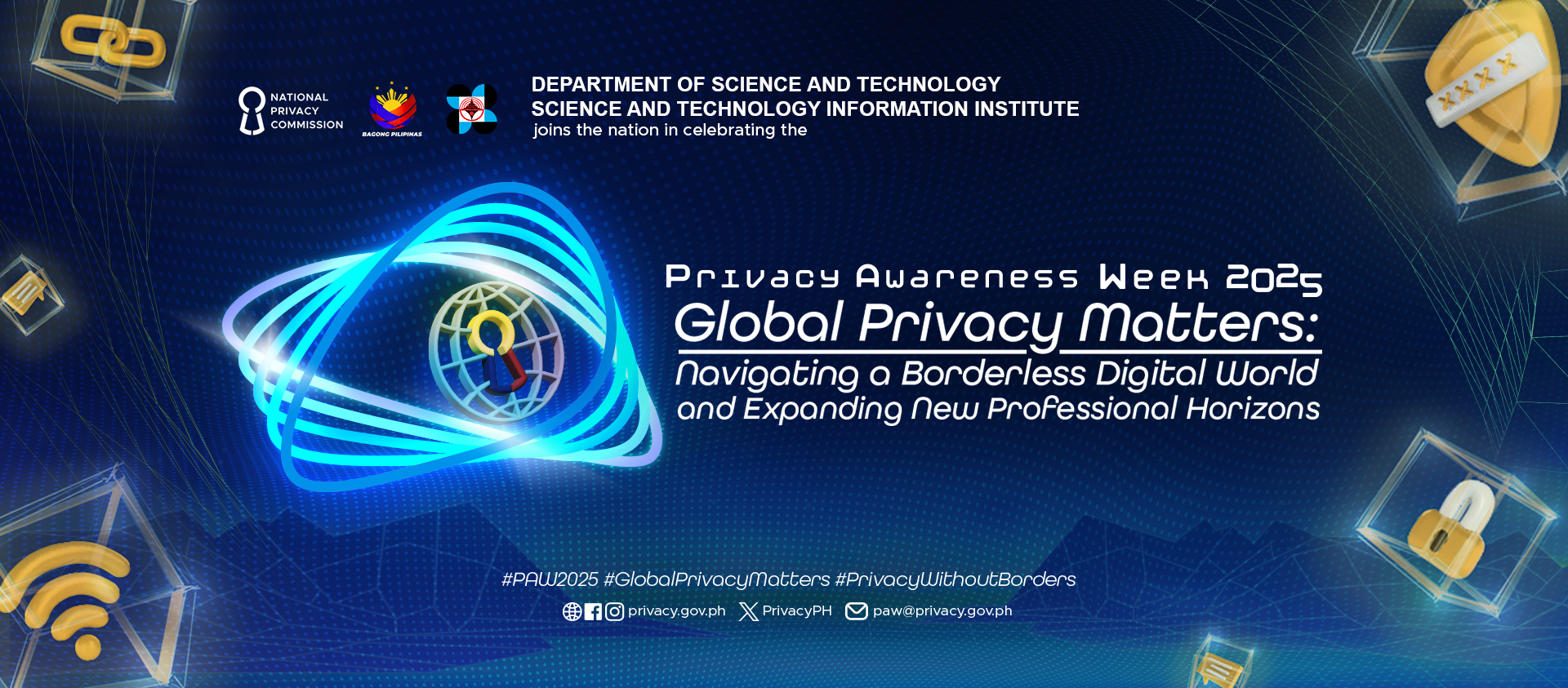
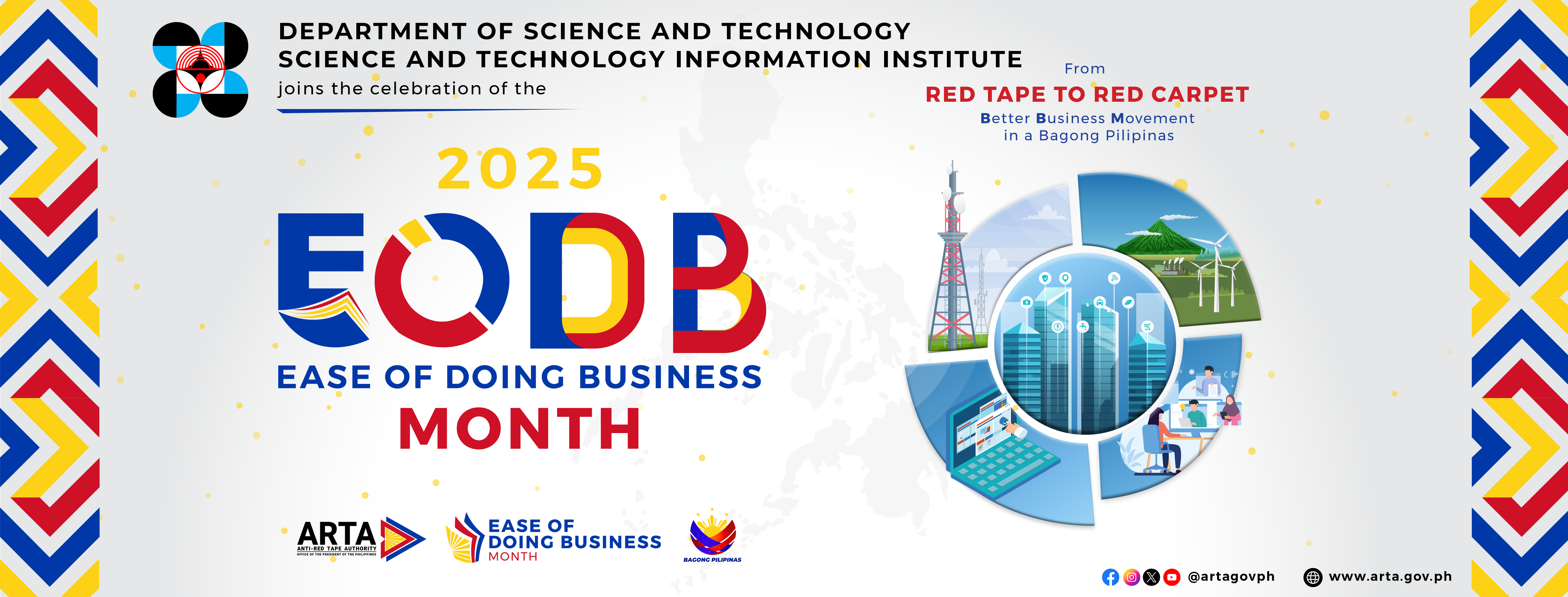
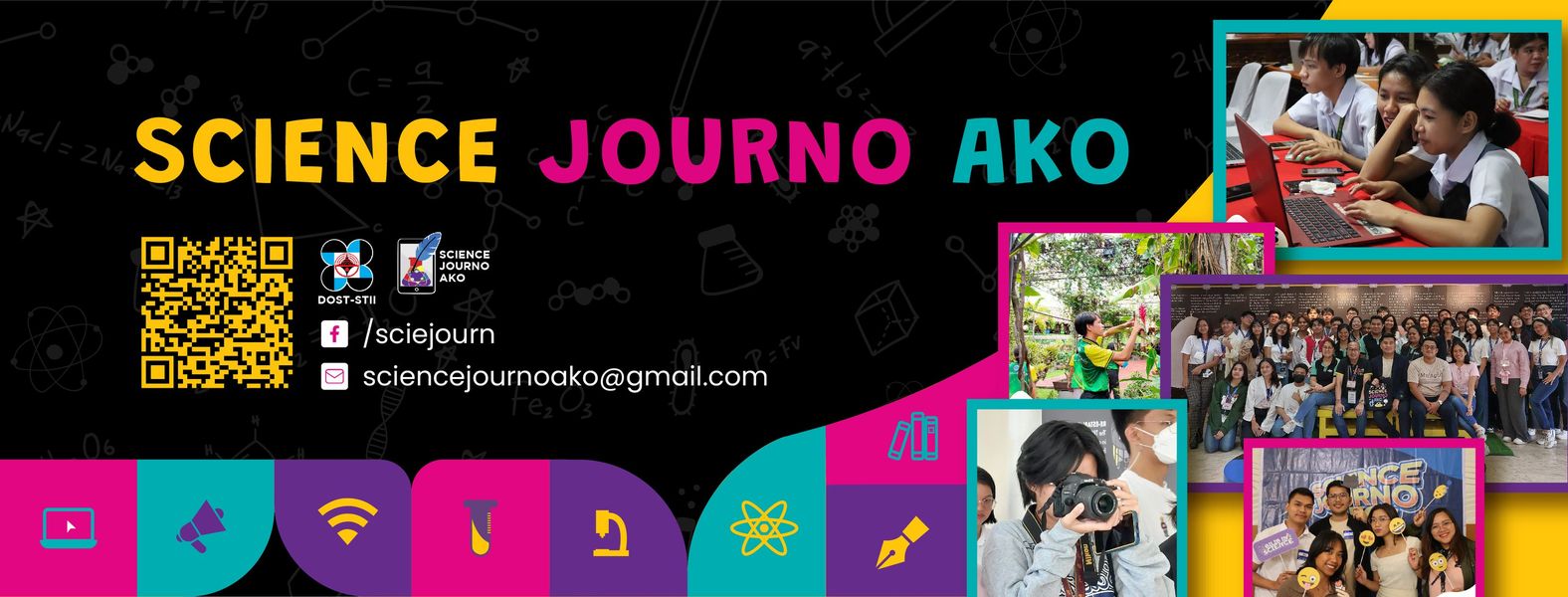
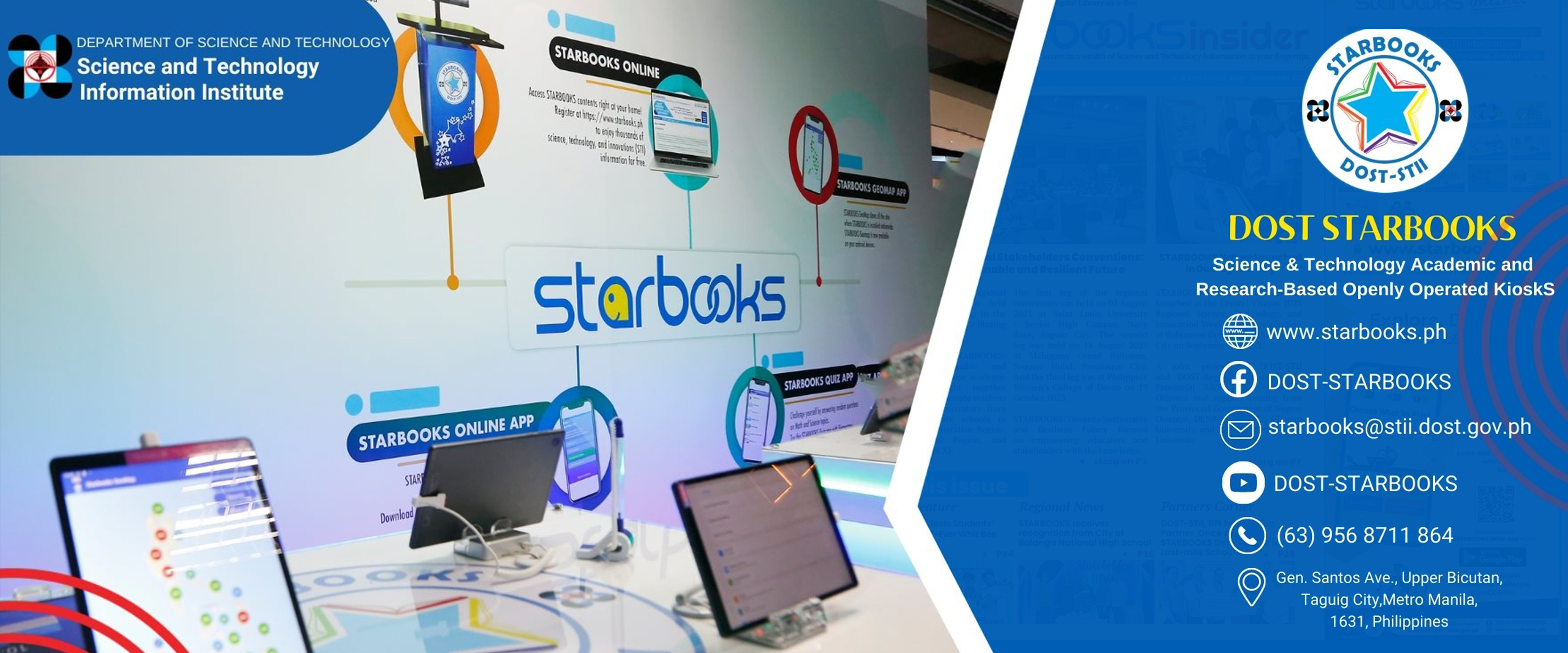
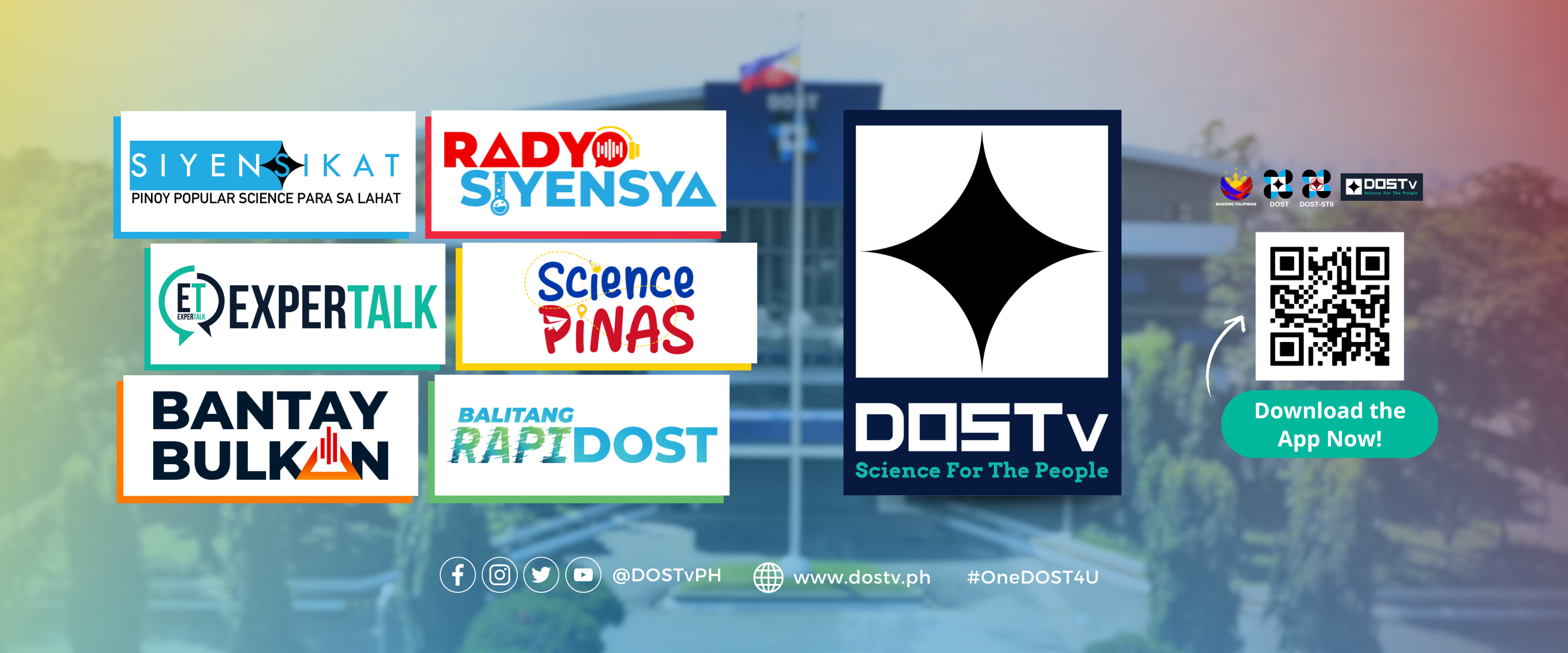

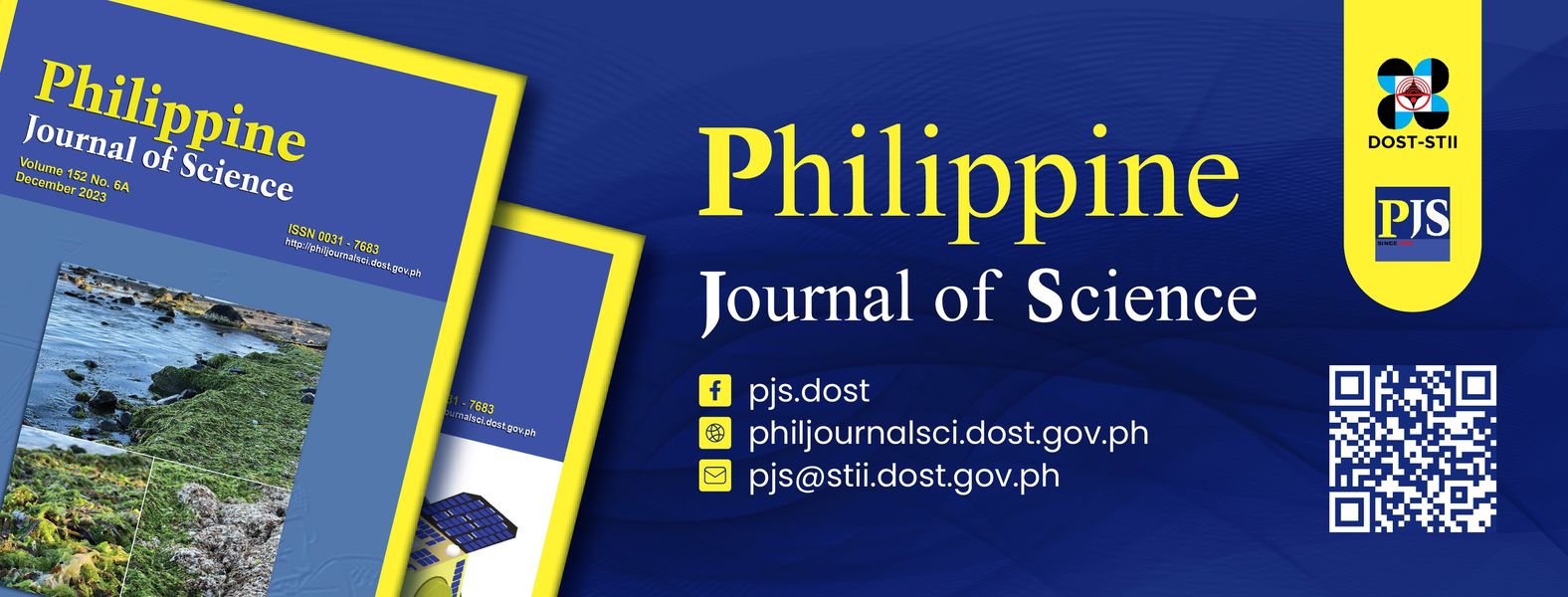




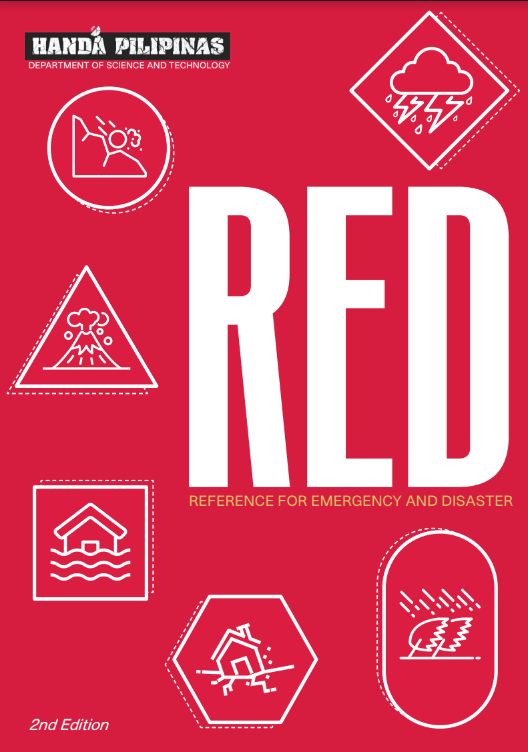





 21 in 2021 Technology Catalogue
21 in 2021 Technology Catalogue 21 in 2021 Technology Catalogue
21 in 2021 Technology Catalogue DOST Innovations - Web and Mobile Applications for Disaster Risk Reduction and Management
DOST Innovations - Web and Mobile Applications for Disaster Risk Reduction and Management